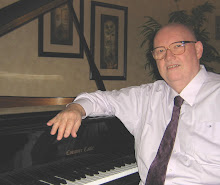
GRANDCHILDREN, MINE, are working on their future college placements.....by playing the piano! Surprised? Studies show that music students score higher on the SATs in both verbal and math skills than their non-musical peers. Music participants also receive more academic honors and awards, have higher grade point averages, and score higher on standardized tests. Musicians are also the largest single group admitted to medical schools. Doubt it? On your next office visit, ask your doctor what instrument he or she plays. Almost all physicians have musical backgrounds. This is why all four of my grandkids are involved in music. A recent ten year study of 25,000 students proved that musicians are better equipped to comprehend mathematical and scientific concepts, regardless of socioeconomic backgrounds. Even students who are underachievers, or, have behavioral problems, show improvement after embarking on music lessons. In study after study, scientists are finding correlations between music making and the deepest workings of the human brain. College age musicians prove to be emotionally healthier than their non-musician counterparts. In addition, many colleges give substantial scholarships to musicians, especially pianists. A student need not even be enrolled in the music program. An engineering major willing to play for the glee club, or chapel, can often earn a free ride. A parent can brag that "My kid plays for the University Of Pennsylvania." and the kid never touches a football. Next time a decision needs to be made between music, sports, or, some other activity, choose music. Preferably the piano.
NO TALENT IS NEEDED to play the piano. Agreed, it takes talent to become a great pianist, but, to play a piano reasonably well requires less comprehension and hand to eye coordination, than it takes to operate an automobile. Unlike other instruments that require a player to make, or form, the note tones, all one need to do on a piano is simply push down a key. Although a piano keyboard looks complicated, there are actually only a dozen keys to deal with. The same dozen keys repeat themselves at lower or higher pitch all up and down the keyboard. Picture an automobile with six steering wheels lined up across the dash board, and, any one you choose, will steer the car. An average adult, willing to devote twenty minutes a day, can learn to play most popular music, reasonably well, in about six months. Most children who practice ten minutes, twice a day, five days a week, can become proficient in both classical and popular music in five to seven years. Many parents whine that their kids "don't show any interest," or, "get bored easily." If reading or math were approached on that basis, then, kids would never learn those skills either. Music is an important part of every child's education. Do your job, parent!
HELP IS AVAILABLE. If you need a teacher, have a piano to be tuned or repaired, or, wish to rent or purchase a piano at reasonable cost, call me at 609-220-6589.

